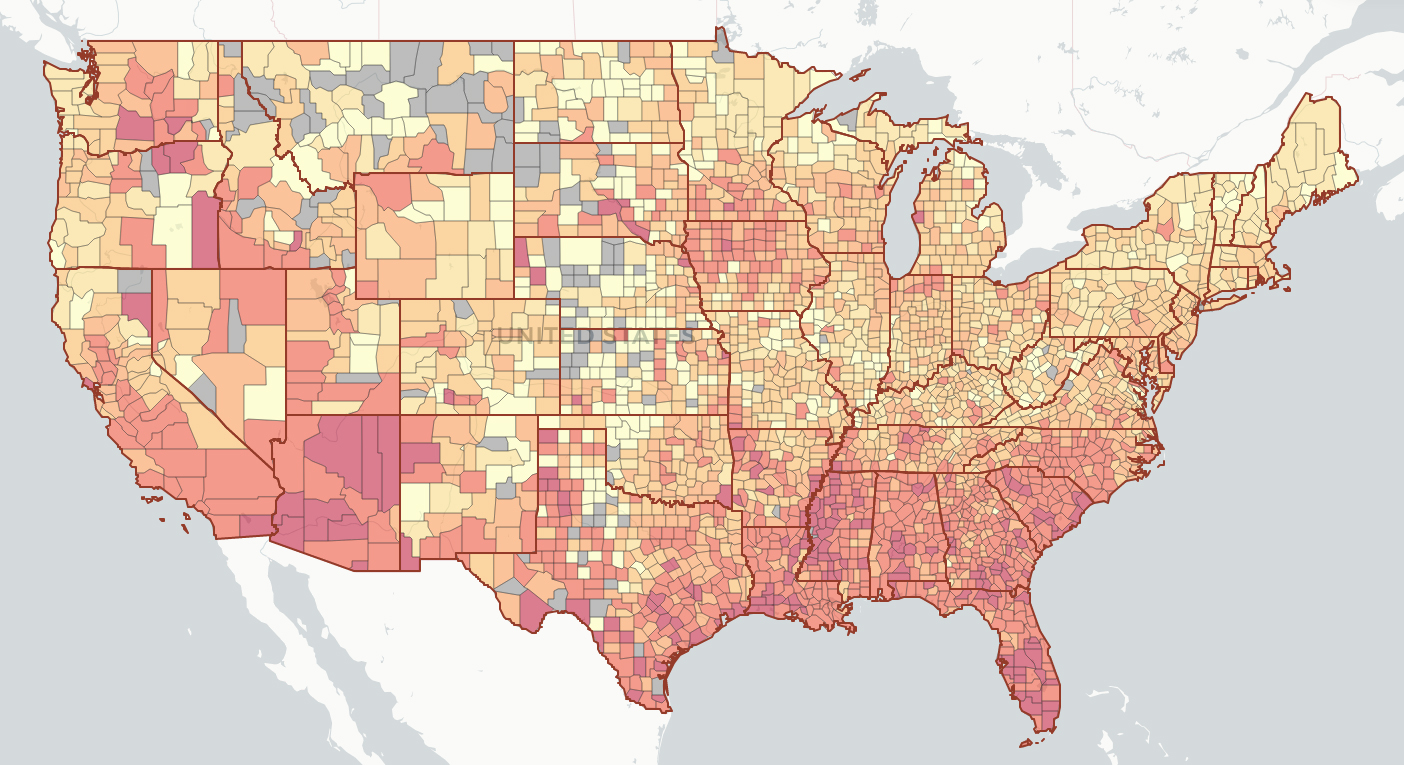One research paper details the evolution of a Georgia Tech-built website that calculates the estimated risks of gathering in groups for every county in the United States during the Covid-19 pandemic. The other Georgia Tech research paper looks for mathematics-based structure and symmetry deep inside the folds of origami, the ancient Japanese art.
The two studies address very different scientific issues, but they are both authored by College of Sciences faculty — and are the two studies that share the 2021 Best Faculty Paper Award, presented by the Georgia Tech Chapter of Sigma Xi, the scientific research society, during its annual end-of-year honors.
Joshua Weitz, Patton Distinguished Professor in the School of Biological Sciences and founding director of the Interdisciplinary Ph.D. in Quantitative Biosciences program, is one of two corresponding authors of “Realtime, interactive website for US-county-level COVID-19 event risk assessment”, published in Nature Human Behavior in November 2020. The paper's co-author and project collaborator, who shares the award with Weitz, is Clio Andris, assistant professor in the School of City and Regional Planning in the College of Design, with a joint appointment at the School of Interactive Computing at Georgia Tech.
Four other researchers and experts from the School of Biological Sciences — Aroon Chande, Quan Nguyen, Stephen J. Beckett, and Troy Hilley — also worked on the study.
The ability for the Covid-19 Risk Assessment Planning Tool website to drill down to the county level for the entire country was introduced in July 2020, during the height of the pandemic. “We have developed an interactive county-level map of the risk that one or more individuals may have Covid-19 in events of different sizes,” Weitz explained, at the time.
“The issue of understanding risks associated with gatherings is even more relevant as many kinds of businesses, including sports and universities, are considering how to re-open safely.”
Since the website launched last summer, it has been featured in over 150 external stories and interviews by media outlets on the pandemic. The website was developed in collaboration with Andris’ lab and with researchers from the Applied Bioinformatics Laboratory, a public/private partnership between Georgia Tech, IHRC Inc., and ASRT Inc.
For David Zeb Rocklin, an assistant professor in the School of Physics, it was the intersection of art and science — or rather, using the math in origami principles to enhance science — that led to his paper and latest honor from Sigma Xi.
"Hidden symmetries generate rigid folding mechanisms in periodic origami", published in November 2020, appeared in PNAS (the Proceedings of the National Academy of Sciences).
The paper, which Rocklin co-authored with graduate student James McInerney, “gives us access to a lot of mathematical technology,” Rocklin says, by looking at origami sheets in a new way, which could lead to even more practical scientific and engineering applications for origami.
“I’m a soft matter physics guy, so I study how the geometric structure of a system controls how it changes shape when you push on it,” Rocklin says. “On the one hand it’s something you can hold in your hand and feel it and see it moving in real space, but on the other hand, it embodies and obeys these really austere algebraic structures.”
Since 1947, the Georgia Tech Chapter of Sigma Xi has annually honored faculty and students for their research at the annual Spring Awards Banquet. The Georgia Tech Sigma Xi Research Awards are made possible by the support of the Georgia Tech Research Corporation and the Ferst Foundation.
Sigma Xi, The Scientific Research Society, founded in 1886 at Cornell University, is the honor society of scientists and engineers that recognizes scientific achievement. Its mission is to enhance the health of the research enterprise, foster integrity in science and engineering, and promote the public’s understanding of science for the purpose of improving the human condition.
For More Information Contact
Renay San Miguel
Communications Officer II/Science Writer
College of Sciences
404-894-5209




